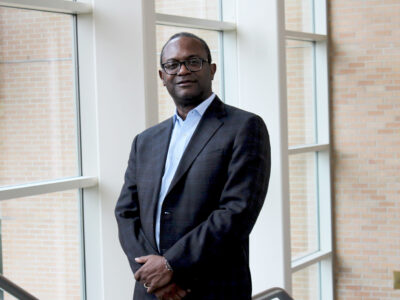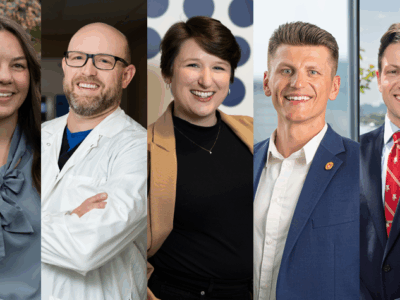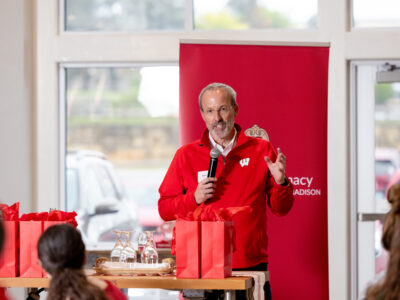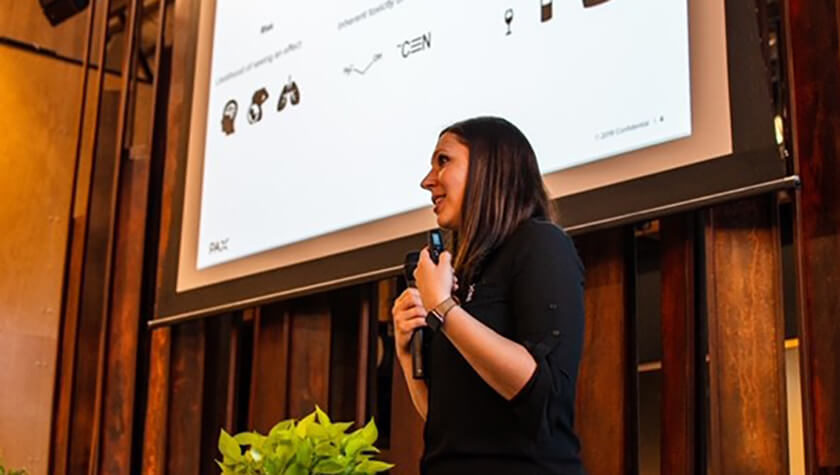
10
September

Alumna Echo Rufer traded in a career at a tech giant to guide the safety of cannabis vaporizers
By Hanzhu Tang
When Echo Rufer (BS ’04) first saw the job listing for the head of biocompatibility and toxicology at PAX Labs, a cannabis vaporizer company, she was a toxicologist at Apple and was not immediately drawn to the possibility.
“I kind of ignored it at first and didn’t take it seriously,” says Rufer, mostly because of the controversial nature of cannabis and because it was a startup company — a fraction the size of Apple. But when she mentioned it in passing to a friend who happened to be a leader in the cannabis industry, he urged her to jump at the opportunity.
“That industry is booming and PAX is one of the leaders,” he said. “That job would be a chance to be a pioneer in the industry.” Rufer’s chance decision to follow his advice and apply wound up re-shaping her career.
In an unexpected pivot from her career at Apple, Rufer seized the opportunity, moved to San Francisco, and is now a leader in this new-but-booming industry.
Finding a career in industry
Born in Monroe, Wisconsin, Rufer grew up interested in understanding mysteries and helping people. That path led her to the University of Wisconsin–Madison School of Pharmacy’s Pharmacology and Toxicology program.
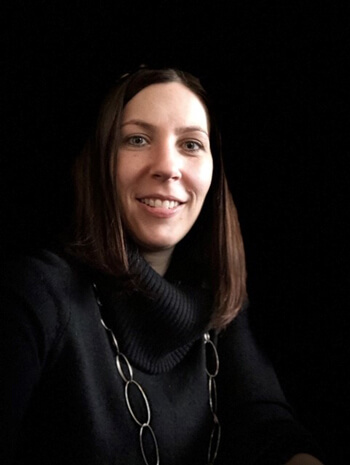
When she first enrolled, she was considering pursuing a PharmD or medical degree after PharmTox, but she quickly gravitated toward toxicology.
“I was less interested in pharmacology and more fascinated by toxicology and learning how substances cause harm to the body,” she says.
At the end of the undergraduate program, Professor Jeffery Johnson urged her to pursue a PhD in toxicology — which was not in her original plan. Instead, she had planned to take a year off to mull over her next career move. But after more thought and conversations with Johnson, she enrolled in the Molecular and Environmental Toxicology graduate program at UW–Madison, where she explored hazardous chemicals and their potential effects on humans and the environment.
When she graduated, instead of staying in academia, she began looking into her options to go into industry, which she hoped would provide a more stable stream of revenue for research and would allow her to step away from the bench. In passing conversation with one of her mentors (Professor Emeritus Richard Peterson), Rufer found a golden opportunity: toxicologist for Proctor & Gamble, working with some of the biggest names in cosmetics.
As a toxicologist (and later senior toxicologist), Rufer was responsible for ensuring the safety of ingredients and processes for brands like Gillette, Olay, SK-II, and Dolce & Gabbana. Her work with these high-end brands took her around the world, with stops in Japan and Singapore, to keep an eye on safety.
After working with P&G for nearly five years, Rufer was visiting her family in Wisconsin when she received an unexpected LinkedIn message: A recruiter at Apple wanted to know more about her background.
“I was wondering why Apple would need a toxicologist,” she says. As it turned out, the tech giant was developing the Apple Watch and needed an expert in both skincare and toxicology to ensure that the product was safe for close prolonged skin contact. A competing brand had recently faced recalls after their wristband caused allergic skin rashes, and Apple wanted to head off a problem before it could start. Rufer, with a PhD in toxicology and experience in cosmetics, was a perfect fit.
“I’m glad I’ve been able to step out of the lab and use my scientific background to guide the work of outside consultants and labs and conduct risk assessments.” –Echo Rufer
Unlike Apple’s many programmers and engineers who focus on the product design and development, Rufer conducted toxicological assessments for the materials used in Apple products, investigated possible safer alternatives, and educated Apple stakeholders and suppliers on best practices for safer material usage in applications with skin contact.
New industry, new horizons
Rufer had been working with Apple for four years when she decided it was time to change things up in her career. That’s when she uncovered the unconventional opportunity at PAX Labs, a company that makes cannabis vaporizers, and she’s never looked back.
“The industry is so dynamic, and the company is so much fun,” says Rufer. “It is really interesting to examine cannabis from a scientific standpoint. We want to understand more about cannabis and how to make cannabis consumption safer. I love that I get to be the center of things because of the emphasis PAX places on safety.”
Currently, Rufer works with about 255 people and the number of staff members has increased 50 percent in the six months she’s worked there.
As the head of the biocompatibility and toxicology, Rufer is involved in everything from providing input on how devices are designed to which chemicals need to be avoided during cleaning or manufacturing. She’s not in the trenches doing benchwork herself, and that’s exactly what Rufer was looking for.
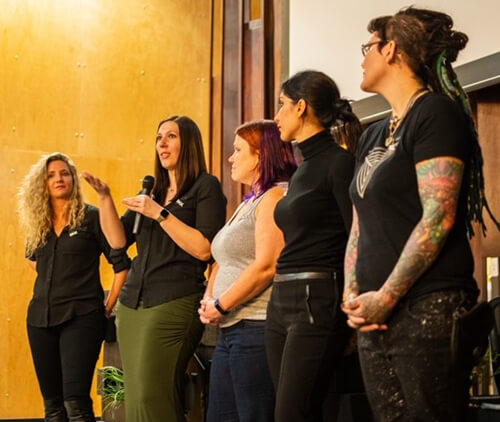
“I never want to touch a pipette again,” she jokes. “I’m glad I’ve been able to step out of the lab and use my scientific background to guide the work of outside consultants and labs and conduct risk assessments.”
The emerging cannabis market isn’t regulated the same way the pharmaceutical or cosmetics industries are — at least, not yet. Instead, Rufer has to rely on her experience to translate best practices she’s worked closely with before to develop a new, relevant set of internal guidelines to keep consumers safe.
“In pharma, there are very specific guidelines. But here, we have to decide for ourselves what makes sense and what’s feasible since current cannabis regulations oftentimes don’t go far enough to keep people safe,” she says.
But as states increasingly legalize or decriminalize cannabis, she expects the regulatory environment to change rapidly. “Regulators are looking to companies like us for guidance, to see what we’ve implemented and what’s working,” she says.
The shifting landscape will also have an impact on the depth of research she can do at PAX, as many of the labs they work with currently aren’t able to test cannabis in the devices to monitor concentrations in the vapor being inhaled by consumers.
“The federal prohibition of cannabis means that currently, research is quite limited,” she says.
Always a Badger
Today, 15 years out of the School of Pharmacy, Rufer still often draws on the fundamentals of science, research, and toxicology she learned in the PharmTox program.
“I vividly remember Burt Olson’s respiratory toxicology lectures, and I’m frequently recalling those lectures now that I work with vaporizers,” she says. In addition to lecturing himself, Olson also helped coordinate lectures in the PharmTox program to expand the young researchers’ exposure to different fields and areas of expertise.
As an explorer, pioneer, and innovator in her field, Rufer is grateful for the agility and curiosity built into her degree. The career plan she thought she had was quickly remapped, a few times over. She urges current students to approach their future with flexibility but with a few guiding principles in mind, instead of getting tied up in pursuit a detailed five- or 10-year plan.
“When I was 21, I never thought I was going to earn my PhD, work at Apple or in the cannabis industry,” she says. But she embraced opportunities as they came along, and that approach has paid off: “Deciding to apply for that job at PAX turned out to be one of the best decisions of my life.”
Read more about PharmTox Program at the School of Pharmacy.
Learn about another PharmTox alum, Kyle Kleinbeck (BS ’07, PhD ’11), who built a career in nonprofit pharma.


